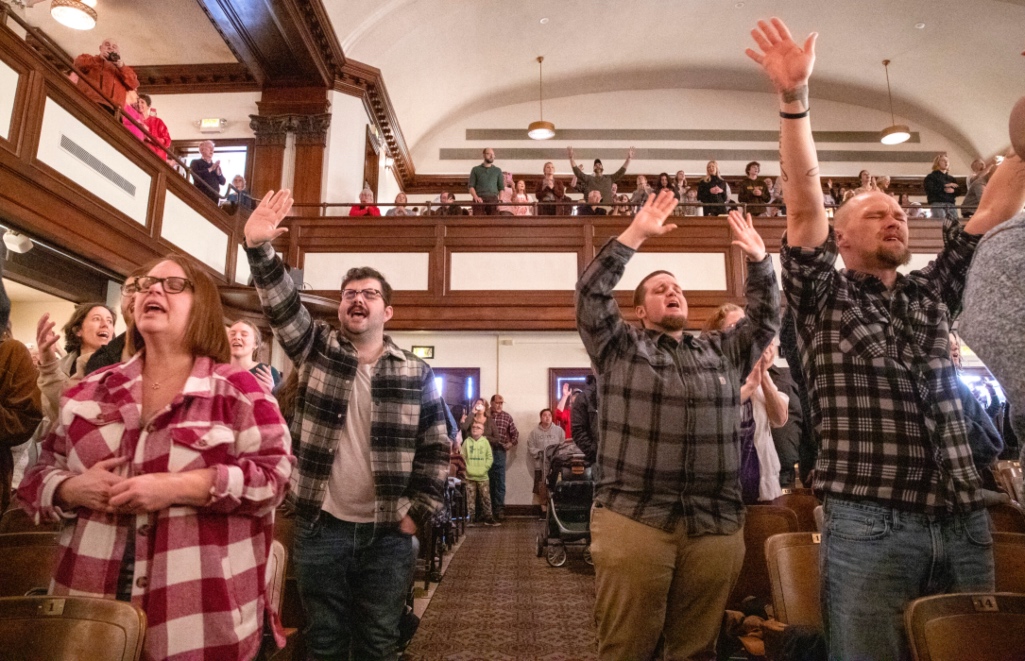How do we find happiness? The second sentence of our Declaration of Independence, when it is understood properly, is a positive expression of individualism and a key to finding happiness. “We hold these truths to be self-evident, that all men are created equal, that they are endowed by their Creator with certain unalienable rights, that among these are life, liberty, and the pursuit of happiness.” Here are the great truths of our independence succinctly stated. All human beings are “created equal” and “endowed by their Creator with certain unalienable rights.” The primary rights the Creator has given us apply to life, liberty and the pursuit of happiness. Yet, we have come to a place where majority values and civil religion have been challenged and opposed so effectively by social engineers and activist judges that, in the name of individual rights, we have actually undermined our Declaration of Independence. …
First, let’s consider the right to pursue happiness. Do you really think the intention of our early leaders was to use the power of the state to support socially dysfunctional lifestyles under the guise of a person’s pursuit of happiness?
Obviously, many secularists and liberals believe just that as they are fond of saying that a person has the right to, “pursue happiness as he or she defines it.” That’s quite a philosophical stroke of the brush. Where does such a pursuit end? Well, it ends with the pursuit of traditional values. From the secularist and liberal perspective, it seems that this wide-open pursuit of happiness-as-you-define-it only applies to individuals and minorities that don’t agree with traditional values. For example, if one defines happiness as the ability for one’s children to make their way through society without being coerced to accept the validity of homosexuality or same-sex marriage, then the courts expect you to be unhappy. … However, if a large segment of the population is unhappy about the fact that the civil religion of the country is marginalized by the government, the courts don’t consider that worth worrying about. To the contrary, it is something to worry about because a true democracy listens to the concerns of all people, not just the concerns of minority groups.
Second, let’s critique the American concept of liberty and the right of the people to live out their conscience, which is somewhat of a myth in our society.
The public school system is a classic example of our loss of liberty. In our “free” society, a public school system in the Bible Belt that’s overwhelmingly comprised of Christian families, Christian educators, and Christian administrators does not have the right to introduce any aspect of religion into the daily routine of the students and faculty. The basis for the elimination of religion from the public schools is the argument of separation of church and state. Interestingly, the argument’s original intent was to prevent a state run church as was common in Europe, but it has evolved into a separation of the popular religion of the people and the state.
… If you promote Christianity in a public school system in the South, there is no doubt that you will be forcing someone who pays taxes to put up with something they don’t profess or believe. That is not to say that you are forcing them to practice Christianity. However, you are forcing them to accept the fact that the majority will be exercising their right to pray and practice their religion as Christians.
No doubt some would argue that this is a constitutional violation because the non-Christian minorities involved are offended by what is taking place at a tax-sponsored institution.
Yet, there is another side to the argument. What about 90 percent of the families in the school system who believe in Christianity and would love to see it as a formal part of the school day? Aren’t they taxpayers? What about the public schools promotion of homosexuality which runs counter to the beliefs of orthodox Christianity? If the government believes that one taxpaying minority family in the Bible Belt should not have to put up with the beliefs of Christianity, why does the government believe that the majority of tax-paying Christians in the Bible Belt should have to put up with the beliefs of the minority? …
Third, we must give our attention to the right to life. The loss of the right to life is captured in one word, abortion. There is no need to throw out statistics on abortion. You can go online and find hundreds of statistics on your own. The fact is, with the number of abortions that take place in America annually, it is clear that the majority of abortions in our country are for the sake of convenience not because the life of the mother or child is in danger. …
Finally, it should come as no surprise that the erosion of our freedoms involves an attack on the very source of our freedom, that is, an attack on God. With the elimination of God from our civil conscience, we’ve initiated a process of rapid decline. Take away one’s sense of responsibility to God, and one’s sense of responsibility to family and society will be the next to fall to the wayside. … In order to be happy, we must first fulfill our responsibilities to God, family and society.
(EDITOR’S NOTE – This column is an excerpt from Rit Varriale’s book Reformation in Responsibility: A New Ethic for a New Era. Varriale is pastor of Elizabeth Baptist Church in Shelby, N.C. Visit RinR.org to order copies of the book. It is downloadable for Kindle or Nook and at Amazon.com.)


